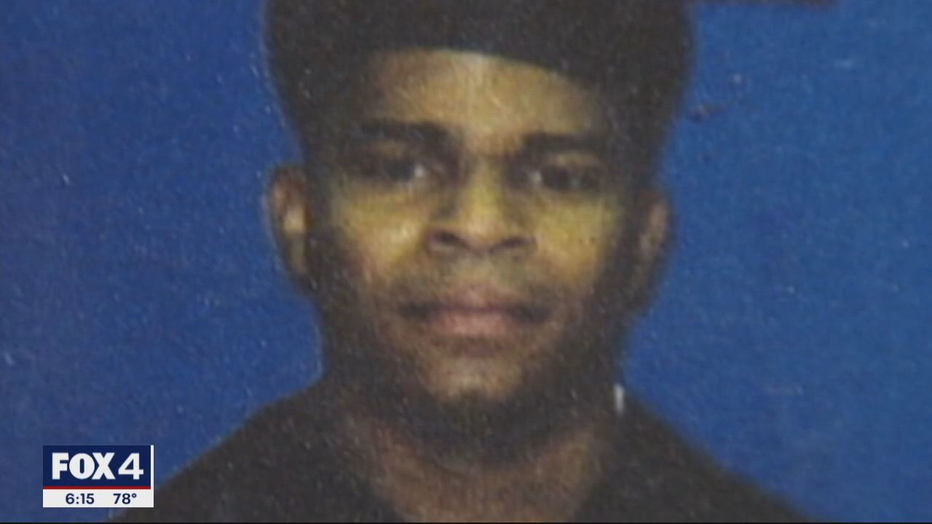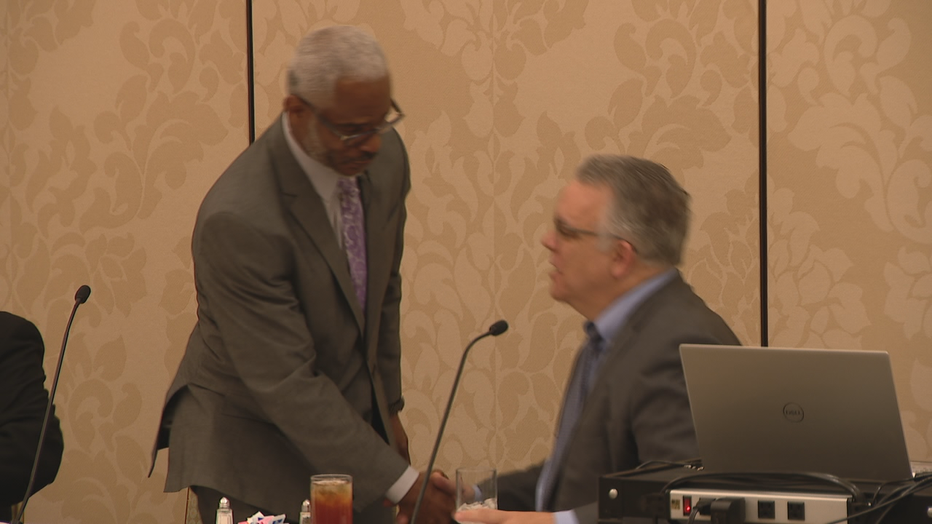Exoneree Richard Miles, man who prosecuted his case discuss criminal justice reform

Exoneree Richard Miles, man who prosecuted his case discuss criminal justice reform
A historic conversation took place at the Dallas Bar Association Luncheon when a man who was wrongly convicted and served 15 years behind bars and the prosecutor who tried his case came together.
DALLAS - A historic conversation took place at the Dallas Bar Association Luncheon when a man who was wrongly convicted and served 15 years behind bars and the prosecutor who tried his case came together.
The two spoke about what should change in the criminal justice system to keep innocent people from suffering in prison.
FOX 4’s Shaun Rabb initially covered the trial in 1995 when Richard Miles was found guilty and sentenced to 60 years in prison for murder and also covered Miles’ exoneration in 2012.
It all came full circle on Friday with Shaun Rabb moderating a conversation between Richard Miles and Thomas D'Amore, the man who prosecuted his case.
"Did the system fail? Yes, it did," Miles said. "And oftentimes, people say that the system dies exactly what its created to do."
"And I would probably say looking back and reflecting on things, if it’s not, it should be law enforcement or the prosecutor whoever's in that position. It should be, or it’s their worse nightmare for something like this to happen," D’Amore said.
MORE: North Texas exoneree fights for justice with Richard Miles Act
"The reality in my case was I did not fit the description of the shooter," Miles said. "So I should not have ever been picked up. The description of the shooter was 6’2", 6’4", real dark complexed."

Miles was arrested at 19 years old despite people who vouched for where he had been and witnesses to the shooting that said he dd not look like the shooter they saw. He was charged and convicted 17 months later on the word of just one eyewitness.
"If all you have is a witness, I think we should really begin to look at the whole weight of the case and all evidence taken into consideration," Miles said.
"All the information was allegedly turned over to the DA's office, and that’s what the jury based their decision on," D’Amore said. "As it turns out, that was incorrect."
Two reports police had never made it from the case file to prosecutors and defense lawyers, including one detailing a caller who told police her boyfriend did the shooting and named him.
"That would have been a huge determining factor," D’Amore said. "We probably would have never gone to trial if we had that information."
Justice was delayed 15 long years but wasn’t denied.
4 The Community: Richard Miles becomes a hero
"I hope we leave here today not pointing towards anybody but pushing towards justice," Miles said.
"Whether you're a defense lawyer or whether you're a police officer or prosecutor, always strive to do the right thing and always check, recheck and double check," D’Amore said. "Think outside the box if you have to. Don’t let this happen again."

The Richard Miles Act, which is now law in Texas, requires law enforcement to turn over all evidence and information in a case, including exculpatory evidence. That’s something that might clear a person charged with a crime.
Law enforcement must sign a document saying they've turned over any and all evidence. Should that not be the case, the signing person can be held legally responsible.

